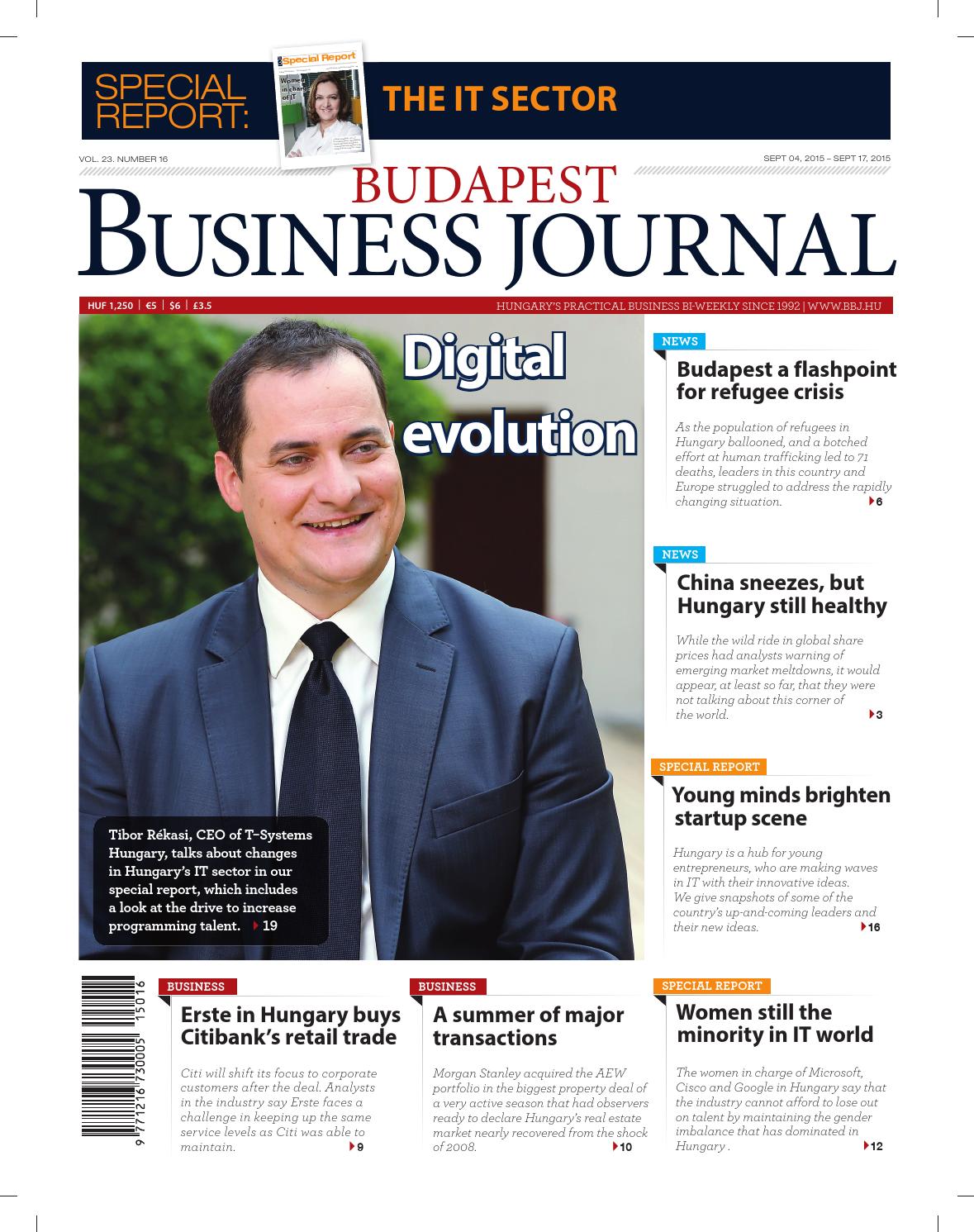FirstMed Aiming at Expansion & Introducing AI
- 5 Aug 2024 9:41 AM
- Budapest Business Journal

The company is now targeting expansion to foreign markets. Dennis Diokno, founder and managing director of the firm, talks with the Budapest Business Journal about past experiences and future plans.
BBJ: FirstMed opened in Hungary in 1999. What were the main difficulties setting up the business here then?
Dennis Diokno: We started the project in Hungary in 1998 and decided to invest here because these were times of change, of rules being rewritten. In Western and Southern Europe, the rules were set, and the bureaucracy has been the same for 50 or 100 years.
The difficulties in the early days were that, in Hungary, the rules were, literally, being written as we were opening. Nobody had made a clinic like ours in Budapest at that time. But apart from that, I would say, for the most part, that things worked smoothly here in Hungary.
The language was a bit of an issue because it was generally easier to communicate in German than in English. But most of the people I was dealing with spoke English quite well. As we progressed over the years, more and more young people were speaking English. We had no significant issues with the bureaucracy. It was easier to get things done here compared to my previous experiences in China or even in Moscow.
BBJ: What was the competition like?
DD: We started seeing more private clinics after 2010, but they were not really competitors for us, as we focus mainly on expats. Of course, our client base has changed over the years, but our patients are still primarily foreigners, at about 75-80%, with 20-25% Hungarians. Also, there are different levels in the private sector.
The price points are very different depending on the clinic, so I would say the market is segmented with varying levels of competition. We see our business as being stable; foreigners have certain expectations, which we definitely meet. We have to maintain a high level of English, not just the spoken part but also the documentation that we issue.
I think one of our critical advantages is that we can deal with more than 150 different international insurance companies in multiple languages, and you have to be able to communicate with them in those languages. There are a lot of different insurance codes involved in dealing with it, and that’s one of our advantages.
BBJ: What are the challenges today?
DD: I would say that there are challenges from time to time; for instance, when the government increased all the salaries of the healthcare workers. That had a major impact on us. However, it was a measure taken for the right reasons; employees in the healthcare sector needed better compensation. So, from a human perspective, I think that was great for the doctors, the nurses and the public sector.
On the other hand, for the private sector, it was challenging. Obviously, we didn’t necessarily have to make a corresponding increase in the private sector, but it still impacted our budget. Also, today, it is more difficult to recruit doctors, at least from the public sector, because some of them just don’t want to give up their state job or their state hours, and this is true for nurses, too.
BBJ: What are your opportunities for growth?
DD: Obviously, there is a certain number of expats or tourist populations in each market. The initial thought was that we would look at expanding more in Hungary, but that would have required us to change our business model and create a different marketing plan. So, we have decided to focus on the international expansion.
We have already opened a clinic in Rome, Italy. And, actually, the Italians are quite impressed with the operation that we have there. We opened an endoscopy center here, and one of the significant areas we’ve grown in, which is also true in Rome, is women’s health. That’s a very popular service and a growing business for us.
Besides Rome, we will open our next clinic in Milan by February 2025. We are planning to open two smaller clinics in Florence and Venice, and we are also considering Lisbon and Paris. There are probably also a few cities in Germany that we would look at as well. Mainly tourist clinics, maybe Berlin. I would expect to see 20 to 25 FirstMed clinics throughout Europe in the near future. And after that, maybe Asia or South America.
BBJ: Society is on the verge of major impacts from artificial intelligence. Is it already present in private healthcare?
DD: We expect to implement some elements of artificial intelligence into our operations before the end of the year. There are medical transcription systems, where basically you can push a button on your computer or your phone and then just look into your patient’s eyes and have a conversation about their case. The system takes the notes, making the medical record for the doctor.
It even has the ability to come up with a diagnosis based on all the information that it has gathered. When you’re done talking to the patient, you can look through the medical record and the recommended diagnosis. The doctor can decide if that’s appropriate or if there’s maybe something else that should be considered. So, now the doctor can focus more on the patient and the computer screen. AI is going to improve the doctor-patient experience. It should also improve efficiency quite significantly.
*********************************
You're very welcome to comment, discuss and enjoy more stories via our Facebook page:
Facebook.com/XpatLoopNews + via XpatLoop’s groups: Budapest Expats / Expats Hungary
You can subscribe to our newsletter here: XpatLoop.com/Newsletters
Do you want your business to reach tens of thousands of potential high-value expat customers? Then just contact us here!





























LATEST NEWS IN specials